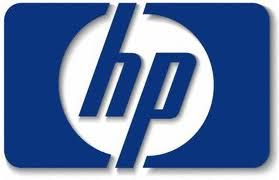HP Clashes With Oracle Over Itanium Lawsuit

HP has threatened to reveal the legal documents surrounding the settling of the Mark Hurd lawsuit
Hewlett-Packard officials are not backing down in the increasingly bitter lawsuit with Oracle over its decision to end support for Intel’s Itanium chip platform.
Responding to accusations Oracle made last week that they were trying to hide information, HP officials said in court documents 7 July that they were open to all information surrounding what they claim was a legal agreement between the two companies to continue supporting products used by joint customers.
HP is suing Oracle, claiming that as part of a settlement with Oracle over Oracle’s hiring last year of former HP CEO Mark Hurd, the two sides agreed to the joint product support, something HP says Oracle is violating by dropping software development support for Itanium.
Publicity Stunt
Oracle officials, who last week called the HP lawsuit a “publicity stunt,” argued that there was no legal agreement between Oracle and HP.
The settlement was more of a “corporate hug” designed to smooth the increasingly deteriorating relationship between what had been two strong partners. Oracle officials are arguing that HP’s desire to keep that agreement sealed – or at least parts of it redacted – were an attempt to hide information that could be damaging to HP’s case.
 HP officials disagreed in court documents filed 7 July, and said they were more than willing to make public the entire settlement over Hurd’s hiring by Oracle.
HP officials disagreed in court documents filed 7 July, and said they were more than willing to make public the entire settlement over Hurd’s hiring by Oracle.
“Oracle argues in its Opposition that by moving to file its complaint under seal HP is trying to suppress the truth about the basis for its claims against Oracle,” HP officials wrote. “Nothing could be further from the truth. There is not a single word in HP’s complaint that HP is not willing – indeed eager – to make public.”
HP officials accused Oracle of a “cheap shot” by disseminating what they said were misleading statements about the merits of the case.
Itanium Support
“Oracle argues that the provision is merely a ‘general reaffirmation of a non-contractual ‘partnership’ that ‘HP cannot seriously contend’ requires Oracle to continue to port its database and other software to HP’s platforms,” HP said in the court document. “Yet that is exactly what Oracle’s own general counsel expressly told HP the provision meant during negotiation of the agreement.”
Oracle in March announced it was ending support for Itanium, based on comments from Intel executives that that giant chip maker was ending development of the processor platform in favour of its x86-based Xeon chips. Oracle joined Microsoft and Red Hat as other major software makers to stop Itanium support.
Intel executives quickly disputed Oracle’s claim, saying they had a roadmap for Itanium that stretches out through the rest of the decade. HP officials claimed Oracle’s move was designed to bolster its own SPARC hardware portfolio, which Oracle inherited when it bought Sun Microsystems last year. HP has based its high-end server products on Itanium, and it’s by far the top user of the chip.
The Sun acquisition started a downward spiral in the relationship between HP and Oracle, longtime partners who share about 140,000 customers, many of whom run Oracle’s database software on HP Itanium-based Integrity and NonStop systems. The relationship was further when Oracle hired Hurd after Hurd was forced to resign last year as HP’s CEO following questions around his personal conduct.
HP sued Hurd and Oracle over the hiring, and it was the settlement of that suit that has become the crux of the current legal wrangling between the two companies.